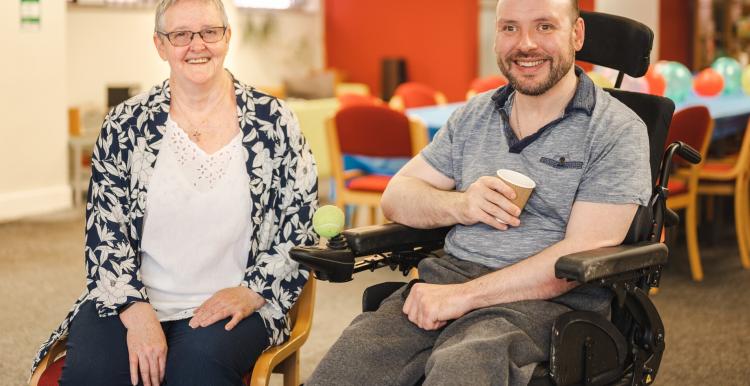More than half of people with chronic and long-term conditions not asked to feed back about their care

Image credit: Centre for Ageing Better
As part of the Because We All Care campaign, Healthwatch England are working with the Care Quality Commission (CQC) to change this.
As part of our Because We All Care campaign, we're working with the CQC to encourage people who have long-term health conditions to share their experience of getting a GP referral for tests or support.
Approximately 15 million people in England have a condition that impacts their physical and mental health and these are often an invisible illnesses, regularly cared for with support from health and social care services and their friends, family and carers.
As health and social care services face increasing demand, understanding the experiences of those using services is more critical than ever.
Giving feedback on your or a loved one's care helps identify unsafe practices so they can be improved and highlight where support is working well. However, our latest findings show this is not always the case, as people are not being asked for feedback.
What was found
We surveyed 1,000 people with chronic and long-term conditions about their experiences using health and social care services.
The survey found that more than half (54%) are not being regularly asked by services to feed back about their care, and almost two-thirds (62%) do not know how to. However, most people (71%) said they would be willing to provide feedback to help the care and services improve.
Other findings
When asked about their recent experience of accessing care, the survey revealed:
- More than two-thirds (69%) were able to be seen by their service within three weeks, outside of their normal scheduled appointments.
- But more than a quarter (27%) of people said the biggest challenge they faced accessing health and social care was longer waiting times.
- A fifth (21%) said ineffective or inaccessible booking systems were the main issue.
What stood out for us
Of people aged 18-24 almost a quarter (24%) said they waited up to six months for an appointment and one in five (21%) reported they do not feel their condition is taken seriously by the service involved.
However, when it comes to providing feedback, 18–24-year-olds were more likely to share their experience of care, 32%, compared to six per cent of those over 75 who have provided feedback in the last 12 months.
Public feedback helps address inequalities
Gathering people’s feedback about services and the care they provide is important in identifying and addressing inequalities so that care can be improved. Not being able to access the right care and support at the right time increases the risk of an individual’s health deteriorating. Working with the CQC, Healthwatch want to address health and social care inequalities and reduce barriers to care.
What are we doing in Milton Keynes?
We know that residents who live with long-term conditions, are struggling financially, or are from minority communities, are more likely face challenges getting the right health and care support.
We're working with the BLMK Integrated Care System to understand why certain people face barriers to getting the care they need.
Milton Keynes: the health of our city
Read the latest data on the health of Milton Keynes, including prevalence of cancer and long-term conditions, areas of deprivation, mortality, and children and young people.
